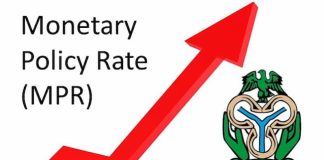The dollar strengthened against other major currencies on Wednesday after a top U.S. policymaker said inflation expectations haven’t gone up as much as he would have liked and he was comfortable with a December rate hike.
Federal Reserve policymaker Charles Evans’s comments cut the euro’s fledgling rally short after it was lifted earlier by reports that Italy plans to reduce its budget deficit over the next three years.
Evans said getting U.S. interest rates up to “a slightly restrictive setting” of 3.0 or 3.25 percent would be consistent with the strong U.S. economy and its inflation rate.
The greenback edged 0.05 percent higher at 95.56 =USD against its rivals and erased its losses against the euro which had gained in early London trading.
Uncertainty surrounding Italy’s debt, fiscal plans and future ties with Europe have unnerved markets and exacerbated tensions with other euro zone leaders.
This has hit the euro, which on Tuesday slid to a six-week low after a senior lawmaker said that Italy should re-adopt a national currency, prompting a broad market sell-off.
The single currency regained some poise after a government source on Wednesday said Rome aims to gradually reduce its budget deficit to 2 percent of gross domestic product in 2021.
“That the Italian government is trying to appease its EU partners can be seen as a step in the right direction and therefore justifies some euro-positive reaction,” said Thu Lan Nguyen, a FX strategist at Commerzbank AG in Frankfurt.
“The devil is in the details. The euro’s recovery will only continue if the new fiscal plans are also feasible,” she said.
The euro was flat at $1.15470 after rising 0.2 percent at $1.1561 EUR=EBS in early trades. In the previous session, it fell to a low of $1.1505, its lowest since Aug. 21.
Other analysts are less sanguine about the euro.
“When was the last time you ever heard anybody question the integrity of any other G8 currency?” said CMC Markets’ chief analyst, Michael Hewson.
“The fact that [Italian] politicians feel the need to constantly reiterate this line speaks to a fundamental weakness at the heart of the single-currency area,” he said.
The yen and the Swiss franc, both safe-haven currencies, struggled against peers such as the euro, dollar and Australian dollar.
“U.S. data due later today, such as the non-manufacturing ISM index, will provide a chance to see if the economy is performing in line with the Fed’s views,” said Junichi Ishikawa, senior FX strategist at IG Securities in Tokyo.
Ishikawa said the dollar has benefited from recent euro weakness but that fundamental factors after the Federal Reserve raised interest rates last month had played a larger role. The dollar index has advanced about 1.4 percent since the Fed moved last Wednesday and said it foresees another rate hike in December.
The pound was 0.4 percent lower at $1.2963 GBP=D3 after dropping on Tuesday to $1.2941, its weakest since Sept. 10, as conflicts over Prime Minister Theresa May’s Brexit plan escalated.
The Australian dollar was down half a percent at $0.7150 AUD=D4, a two-week low.













